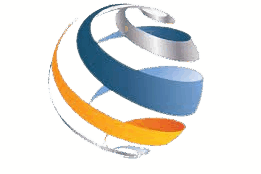If you’re a homeowner in need of extra cash, you’ve probably heard about home equity loans and refinancing. But what exactly do these terms mean, and which one is the best choice for you? Don’t worry—I’m here to break it down in simple terms so you can make a smart decision without getting lost in all the financial jargon.
What is a Home Equity Loan?
A home equity loan is basically a second mortgage. It lets you borrow money by using the equity (the value of your home minus what you still owe on your mortgage) you’ve built up in your home. You get the cash as a lump sum, and you pay it back in fixed monthly payments over a set period—usually 5 to 30 years.
Pros of a Home Equity Loan
✅ You get a lump sum of cash upfront.
✅ Fixed interest rates mean predictable monthly payments.
✅ You can use the money for anything—home improvements, debt consolidation, college tuition, etc.
Cons of a Home Equity Loan
❌ You have to pay back both your mortgage AND the home equity loan.
❌ If you can’t make payments, you could lose your home.
❌ Interest rates may be higher than refinancing.
What is a Mortgage Refinance?
When you refinance your mortgage, you’re replacing your current home loan with a new loan—usually one with better terms like a lower interest rate, a different loan length, or even cash-out options.
There are two types of refinancing:
- Rate-and-Term Refinance – You get a new loan with a lower interest rate or different loan term, but you don’t take out extra cash.
- Cash-Out Refinance – You borrow more than what you currently owe and take the extra amount in cash (kind of like a home equity loan, but with just one loan instead of two).
Pros of Refinancing
✅ Lower interest rates can save you money in the long run.
✅ You can reduce your monthly payments by extending your loan term.
✅ A cash-out refinance gives you money while keeping just one loan.
Cons of Refinancing
❌ Closing costs can be expensive (2-5% of the loan amount).
❌ If you extend your loan term, you might pay more interest over time.
❌ The approval process can be longer and more complicated than a home equity loan.
Key Differences Between Home Equity Loan and Refinance
| Feature | Home Equity Loan | Mortgage Refinance |
|---|---|---|
| Loan Type | Second mortgage | Replaces current mortgage |
| Payout Type | Lump sum | New loan, sometimes with cash out |
| Interest Rate | Fixed | Fixed or adjustable |
| Monthly Payment | Additional payment | Might lower or increase |
| Risk Factor | Risk of foreclosure if unpaid | Can extend loan term, increasing total interest paid |
| Best for… | Large one-time expenses | Lowering payments or getting better terms |
Which One Should You Choose?
The best option depends on your financial goals and situation. Ask yourself:
- Do I just need a lump sum of cash for a specific purpose? → Home equity loan.
- Do I want to lower my mortgage payment or get a lower interest rate? → Refinance.
- Do I want to tap into my home’s equity but keep only one loan? → Cash-out refinance.
- Can I afford to make two loan payments each month? → If not, refinancing might be better.
FAQs (Teenager-Friendly Q&A)
1. Is a home equity loan or refinance better if I need quick cash?
If you need money fast, a home equity loan might be easier and quicker. Refinancing can take weeks or even months to process.
2. Can I use a home equity loan for anything?
Yep! You can use it for home renovations, debt consolidation, medical bills, vacations, or even starting a business. Just remember—you’re putting your home on the line, so use it wisely.
3. What happens if I can’t pay back my home equity loan or refinance?
Since both options use your home as collateral, failing to make payments could mean losing your house. Make sure you can afford the payments before deciding.
4. Can I refinance if I already have a home equity loan?
Yes! But if you have a home equity loan, refinancing can be trickier since your lender will need to approve the refinance along with your mortgage lender.
5. Which one is cheaper in the long run?
It depends. If refinancing gets you a lower interest rate, it’s usually cheaper over time. But if you only need a small amount of money, a home equity loan might be the better option.
Final Thoughts
Both home equity loans and refinancing can be great financial tools, but choosing the right one depends on your specific needs. If you need quick cash for a big expense, a home equity loan makes sense. But if you’re looking to lower your mortgage payments or take advantage of lower interest rates, refinancing is the way to go.
Always do your research, compare offers, and talk to a financial expert before making a big decision. After all, it’s your home—make sure you’re making the smartest move possible!
